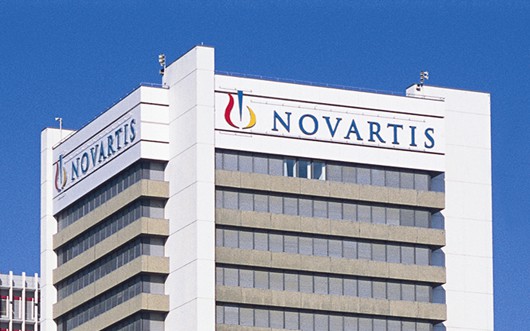
A follow-up to Novartis’ multiple sclerosis therapy Gilenya has been shown to work in a tough-to-treat form of multiple sclerosis (MS).
The new drug candidate – called siponimod (BAF312) – reduced the risk of disability progression compared with placebo in the eagerly-anticipated EXPAND study, which is the largest trial conducted to date in secondary-progressive MS, according to Novartis.
Like Gilenya (fingolimod), siponimod is an orally-active drug that works by preventing the movement of T cells out of the lymph nodes and into the brain and spinal cord, where they can cause damage to the protective myelin sheath surrounding the nerve cells.
Novartis has not yet divulged data from the trial, but said siponimod had met its primary objective of improving the time to three-month confirmed disability progression, as measured by the expanded disability status scale (EDSS) versus placebo.
Novartis’ chief medical officer Vasant Narasimhan said results “are encouraging for a disease with such a high unmet need”. There is no drug specifically approved for SPMS and most patients are treated with the drugs used for the more manageable relapsing-remitting form of the disease.
The company will share the results at the European Committee for Treatment and Research in Multiple Sclerosis (ECTRIMS) congress in London next month, added Narasimhan.
After years of disappointing trials in SPMS – most recently the failure of Biogen’s Tysabri (natalizumab) – there are finally some optimistic signs that patients with progressive forms of MS could get some effective therapies.
Roche has reported encouraging data with Ocrevus, a humanised monoclonal antibody designed to selectively target CD20-positive B cells (ocrelizumab) in RRMS, and SPMS and also primary progressive MS, an early-onset form of the disease in which there is no relapsing/remitting stage and that also has no approved therapies.
Ocrevus has breakthrough status for PPMS – an indication in which Gilenya also failed – and has been fast-tracked by the FDA.
Meanwhile, for Novartis, the positive data could be a big boost for its position in the MS market. Gilenya was launched onto the market six years ago and has become a big seller with sales of almost $2.5bn last year.
The drug is facing patent expiry in 2019, however, so with siponimod Novartis has a means of extending its franchise – which also includes recently-acquired CD20-targeteing drug Arzerra (ofatumumab) – once generic competition to Gilenya kicks in.




